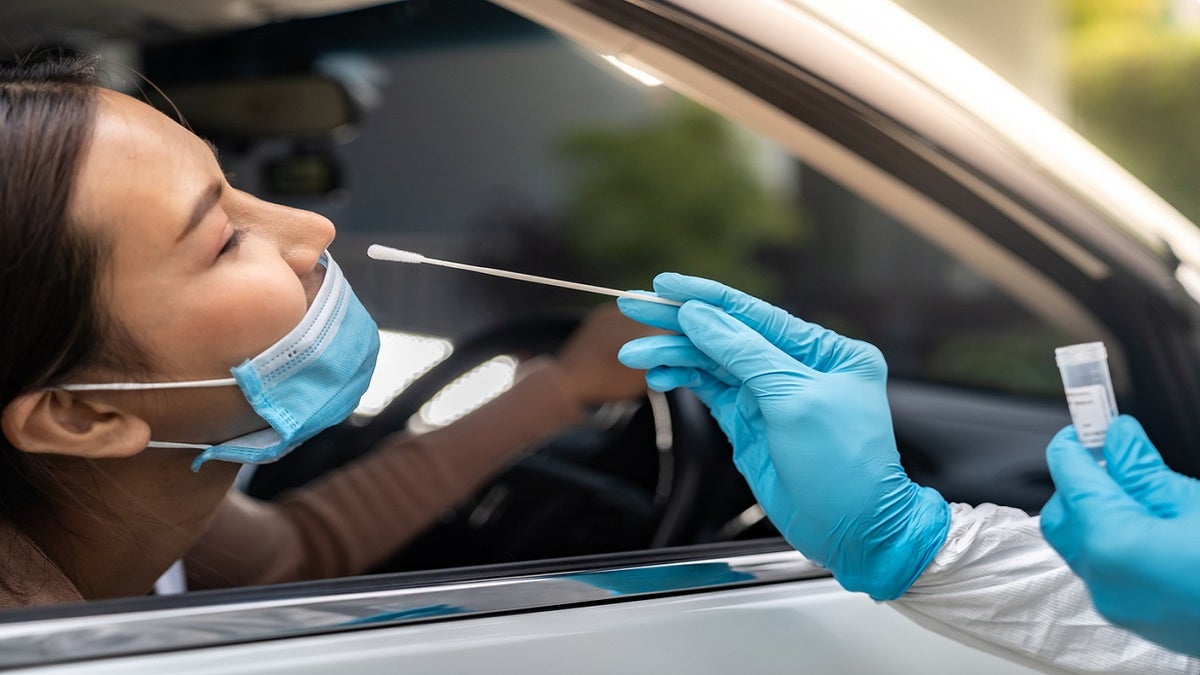Pfizer requests FDA approval to vaccinate kids ages 12-15
Dr. Frita Fisher, certified in pediatrics, nephrology, and internal medicine weighs in on vaccine distribution on 'FOX News Live'
As COVID-19 vaccines go into arms at record pace, and more than one in four U.S. adults are now fully vaccinated, according to the latest numbers from the Centers for Disease Control and Prevention (CDC), some may question whether testing is still necessary after receiving jabs.
"Fully vaccinated people should test if they develop symptoms of COVID or if they think they may have had a significant exposure," said Dr. Anna P. Durbin, a professor at the Johns Hopkins University School of Medicine and Johns Hopkins Bloomberg School of Public Health in Baltimore who specializes in infectious disease and vaccines, in an emailed statement to Fox News.
Likewise, the CDC suggests fully vaccinated people can do without testing and quarantine after an exposure if they don’t develop symptoms.
MICHIGAN CORONAVIRUS STRATEGY SHOULD FOCUS ON RESTRICTIONS, NOT MORE VACCINE SUPPLY, WALENSKY SAYS

Fully vaccinated individuals should seek clinical evaluation should they develop COVID-like symptoms, the CDC says. (iStock)
"If symptoms develop, all people – regardless of vaccination status – should isolate and be clinically evaluated for COVID-19, including SARS-CoV-2 testing, if indicated," the CDC says.
The guidance differs for those in congregate settings (like correctional facilities and group homes) due to turnover rates, heightened risk of virus spread and difficulties maintaining distancing. In these instances, the agency recommends 14-day quarantine and testing following a potential exposure.
As Durbin explains, vaccines are designed to protect against disease, particularly for respiratory viruses. Evidence from clinical trials has shown the recently approved vaccines developed by Pfizer and Moderna are about 95% effective in preventing symptomatic COVID-19, and real-world data has suggested the mRNA vaccines cut infection risk by 90%. Johnson & Johnson previously said its single-shot coronavirus vaccine was 72% effective in preventing moderate-to-severe COVID-19 in the U.S., but fell to 66% in a larger trial conducted worldwide. According to the CDC, early data suggests the Janssen vaccine may tamp down asymptomatic transmission too.
"Breakthrough" cases of COVID-19 — or, contracting the virus despite having received the vaccine — are rare, but possible, Dr. John Whyte, the chief medical officer of the health care website WebMD, previously told Fox News.
The vaccines are very good, he said, but "aren’t 100% effective."
CLICK HERE TO GET THE FOX NEWS APP
"Fully vaccinated people should still watch for symptoms of COVID-19, especially following an exposure to someone with suspected or confirmed COVID-19," the CDC advises. However, the federal health agency says that the risk of becoming infected is "low" for vaccinated individuals. With this, the CDC has already said testing and isolation before-and-after travel is not necessary for those who have completed their vaccinations.
"It is possible that people who have completed their vaccination series can still be infected with SARS-CoV-2; however, the rate of being infected after vaccination appears to be reduced by 70-80% compared to the non-vaccinated population," said Matthew Binnicker, Ph.D., director of the Clinical Virology Laboratory in Mayo Clinic’s Division of Clinical Microbiology, in an emailed statement to Fox News. "Furthermore, in the event that a vaccinated person becomes infected, they may shed lower amounts of the virus and for shorter periods of time compared to non-vaccinated individuals."
Fox News' Madeline Farber contributed to this report.










































